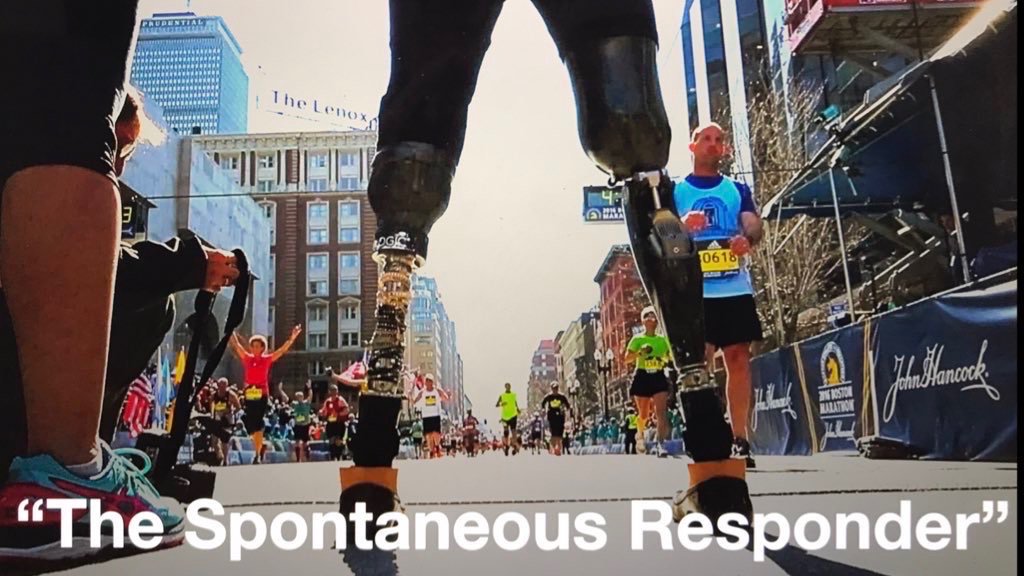
After an extended virus-led hiatus, this weekend I was finally able to return to the @ATACCFaculty and the #ATACC course
The build up felt similar…
An email from @WestCorkRR informing me that I could have ‘my’ lectures if I wanted*
/1
The build up felt similar…
An email from @WestCorkRR informing me that I could have ‘my’ lectures if I wanted*
/1
*not necessarily ‘mine’, but I’ve delivered variances of the initial Roadside to Critical Care talk for a while. I didn’t expect to have them back… but it was amazing to slot back in. I asked to completely change Batons, Blades, Bullets & Blasts… “go for it”
/2
/2
Weeks before I’m even in Lincoln, before the first bag was packed… months and months since I was last there… boom. Engines on! Burners lit!
There’s something incredible about being enabled, trusted and supported to just do what you do.
/3
There’s something incredible about being enabled, trusted and supported to just do what you do.
/3
Then, some trepidation.
Will it feel the same? Will it feel like the family Christmas again? Will it achieve the same things?
It’s been a very long couple of years
We’ve all taken a bit of a kicking
/4
Will it feel the same? Will it feel like the family Christmas again? Will it achieve the same things?
It’s been a very long couple of years
We’ve all taken a bit of a kicking
/4
Low and behold. Day one. All fears blasted away.
The candidates were simply phenomenal. I can’t remember such a cohesive, positive or enthralling group of orange boiler-suits.
The faculty, despite missing a few key faces, were on absolute point.
/5
The candidates were simply phenomenal. I can’t remember such a cohesive, positive or enthralling group of orange boiler-suits.
The faculty, despite missing a few key faces, were on absolute point.
/5
Suddenly, here we are with a group of people who have had that awful time… who have had that kicking…
Enjoying themselves!
Challenging themselves!
Overwhelming, saturating, terrifying and testing themselves!
There was me worrying people would be tired of healthcare
/6
Enjoying themselves!
Challenging themselves!
Overwhelming, saturating, terrifying and testing themselves!
There was me worrying people would be tired of healthcare
/6
But no, here was the perfect reminder that these doctors, paramedics, nurses, firefighters, police officers, students and the rest are all the best of us
Those who still chose to be here. To test themselves further when the world is already trying them hard enough
/7
Those who still chose to be here. To test themselves further when the world is already trying them hard enough
/7
#ATACC does things differently.
I’ve seen it do those different things in different ways. Some for the better, some for the worse.
There’s no one best way to educate, so the course evolves.
Right now, I’m pretty sure the balance is the best it’s ever been.
/8
I’ve seen it do those different things in different ways. Some for the better, some for the worse.
There’s no one best way to educate, so the course evolves.
Right now, I’m pretty sure the balance is the best it’s ever been.
/8
I was fortunate to sit in the back of some of the lectures this time round, and many were absolute top drawer. @Obidoc delivering on massive haemorrhage sticks in my mind especially.
/9
/9
The evolution into masterclasses, with a better blend of skill and theory, scenario and simulation. I found myself envious of candidates!
/10
/10
The scenarios themselves. Of course, some will be stronger for others depending on the candidates background… but overall… scale, objective and delivery hit the nail on the head.
/11
/11
I always come away from a course shattered… but refreshed.
A physical wreck… but clinically enthralled.
This time, it’s the same but multiplied by 10
/12
A physical wreck… but clinically enthralled.
This time, it’s the same but multiplied by 10
/12
To the @ATACCFaculty family, the actors and all of the backroom elements…
Thank you. There were points throughout the weekend where true colours shone through and I will be forever grateful.
You’re the best dysfunctional, hilarious, eccentric pseudo-family I’ve got!
/13
Thank you. There were points throughout the weekend where true colours shone through and I will be forever grateful.
You’re the best dysfunctional, hilarious, eccentric pseudo-family I’ve got!
/13
To the candidates…
Well done. You all put in Herculean efforts and I hope you’ve come away from it as enthralled as me.
Thank you to those who shared some very kind words throughout - they mean a lot.
Until next time.
/end
Well done. You all put in Herculean efforts and I hope you’ve come away from it as enthralled as me.
Thank you to those who shared some very kind words throughout - they mean a lot.
Until next time.
/end
• • •
Missing some Tweet in this thread? You can try to
force a refresh




